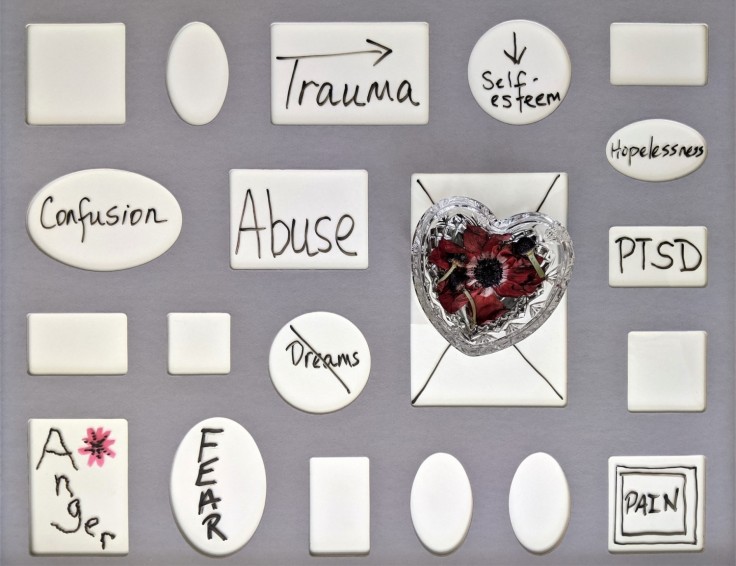The Challenges of Overcoming Addiction When You've Experienced Trauma
Created by
Dealing with addiction is tough, no doubt about it. But when addiction is coupled with a history of trauma, the journey to recovery becomes even more challenging. Trauma can deeply impact a person's mental, emotional, and physical well-being, often leading to the development of addictive behaviors as a way to cope. In this blog, we will explore the unique challenges faced by individuals who are striving to overcome addiction in the face of past traumatic experiences.
The Interplay Between Trauma and Addiction
Trauma and addiction often go hand in hand, with one influencing the other in a vicious cycle. The trauma experienced by individuals can be so overwhelming that they desperately seek relief, leading them to turn to substances or addictive behaviors as a temporary escape. Unfortunately, the relief provided is short-lived, and the underlying trauma remains unaddressed. As a result, addiction takes hold, compounding the individual's pain and making the recovery journey even more complex. Breaking free from this cycle requires understanding the interplay between trauma and addiction, and how they both need to be addressed in order to achieve lasting recovery. Seeking addiction help from rehab centers that offer trauma focused modalities can help people who experience both trauma and substance abuse to address both of them in a safe and healing environment.
Triggers and Emotional Resurfacing
One of the biggest hurdles faced by individuals battling addiction and trauma is the resurgence of painful emotions and memories. Triggers, which can be seemingly innocuous things or situations, have the power to transport a person back to the traumatic event, intensifying cravings and sabotaging recovery efforts. These triggers act as powerful reminders, reawakening the emotions associated with the trauma. Managing these overwhelming emotions becomes an ongoing challenge, requiring individuals to develop healthy coping mechanisms and strategies to prevent relapse when faced with such triggers.
Complexities of Dual Diagnosis
A dual diagnosis refers to the coexistence of addiction and a mental health disorder, such as post-traumatic stress disorder (PTSD), depression, or anxiety. The combination of trauma and addiction creates a complex web of challenges, as each condition influences the other. Trauma can exacerbate addiction, while addiction can intensify the symptoms of a mental health disorder. To achieve successful recovery, it is crucial for individuals seeking help to address both addiction and any underlying mental health issues. Treating one without the other often leads to incomplete healing and a higher risk of relapse.
Rebuild Trust and Establish a Support System
Trauma can shatter a person's ability to trust others and themselves. When individuals have experienced trauma, they may struggle to establish healthy and supportive relationships, often fearing vulnerability and potential harm. Rebuilding trust becomes an essential aspect of healing. It involves learning to trust oneself and others again, which can be a slow and challenging process. Additionally, establishing a strong support system is crucial. This support system may consist of therapists, support groups, or trusted friends and family who provide the necessary encouragement, understanding, and accountability. Having a reliable support system can help individuals navigate the difficult terrain of addiction recovery after experiencing trauma.
Healing Trauma is a Foundation for Recovery
In order to fully recover from addiction, addressing the underlying trauma is imperative. Merely focusing on eliminating addictive behaviors without delving into the trauma will likely lead to incomplete recovery. Therapy modalities such as cognitive-behavioral therapy (CBT), eye movement desensitization and reprocessing (EMDR), or trauma-focused therapy can assist individuals in processing and healing from their traumatic experiences. These therapies help individuals untangle the web of trauma, reduce their reliance on addictive behaviors, and work toward lasting recovery. By healing trauma as a foundation for recovery, individuals can address the root causes of addiction and pave the way for a healthier and more fulfilling life.
Overcoming addiction is a major challenge on its own, but when trauma is added to the equation, the path to recovery becomes even more arduous. It is important to recognize and address the unique challenges faced by individuals who have experienced trauma and are battling addiction. By understanding the interplay between trauma and addiction, how trauma impacts the brain, managing triggers, addressing dual diagnoses, rebuilding trust, and focusing on healing from trauma, individuals can embark on a journey of recovery that encompasses the mind, body, and spirit. Remember, no matter how difficult the road may seem, with the right support and determination, healing and lasting recovery are possible.
© 2026 University Herald, All rights reserved. Do not reproduce without permission.








